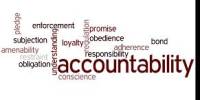Accountancy is the practice of recording, classifying and reporting on business transactions for a business. It is the measurement, processing, and communication of financial and non-financial information about economic entities such as businesses and corporations. It is the process of communicating financial information about a business entity to users such as shareholders and managers. Accounting, which has been called the “language of business”, measures the results of an organization’s economic activities and conveys this information to a variety of users, including investors, creditors, management, and regulators. Practitioners of accounting are known as accountants. The terms “accounting” and “financial reporting” are often used as synonyms. The definition of accountancy is the act of being in a professional field called “accounting,” which involves keeping track of financial records and doing taxes.
The principles of accountancy are applied to business entities in three divisions of practical art, named accounting, bookkeeping, and auditing. Accountancy is the process of managing the income and expenses of a business. It is the keeping or inspecting of commercial accounts; work of an accountant. The key accountancy tasks are noted below: Recordation, Classification, and Reporting.
Accountancy is the profession or duties of an accountant. Although accounting has existed in various forms and levels sophistication throughout many human societies, the double-entry accounting system in use today was developed in medieval Europe, particularly in Venice, and is usually attributed to the Italian mathematician and Franciscan friar Luca Pacioli. Accountancy is the theory or practice of keeping financial accounts. Today, accounting is facilitated by accounting organizations such as standard-setters, accounting firms, and professional bodies. It provides feedback to management regarding the financial results and status of an organization. Financial statements are usually audited by accounting firms and are prepared in accordance with generally accepted accounting principles (GAAP). GAAP is set by various standard-setting organizations such as the Financial Accounting Standards Board (FASB) in the United States and the Financial Reporting Council in the United Kingdom. As of 2012, “all major economies” have plans to converge towards or adopt the International Financial Reporting Standards (IFRS).
















